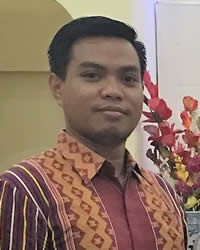Batak Karo in Indonesia

Photo Source:
Copyrighted © 2026
Kerry Olson All rights reserved. Used with permission |
Send Joshua Project a map of this people group.
|
| People Name: | Batak Karo |
| Country: | Indonesia |
| 10/40 Window: | Yes |
| Population: | 1,019,000 |
| World Population: | 1,019,000 |
| Primary Language: | Batak Karo |
| Primary Religion: | Christianity |
| Christian Adherents: | 70.00 % |
| Evangelicals: | 11.00 % |
| Scripture: | Complete Bible |
| Ministry Resources: | Yes |
| Jesus Film: | Yes |
| Audio Recordings: | Yes |
| People Cluster: | Batak-Nias of Sumatra |
| Affinity Bloc: | Malay Peoples |
| Progress Level: |
|
Introduction / History
The Karo Batak people are the indigenous people of the Karo highlands, North Sumatra.
Most of the Karo Batak live in the Karo regency. Some of them live in Dairi, Deli Serdang, Medan, Langkat or Southeast Aceh. Many of them live in villages known as 'kuta.' The traditional homeland of the Batak Karo people consists of the Karo and Dairi regencies and some parts of Deli Serdang, Langkat and Southeast Aceh regencies.
What Are Their Lives Like?
Most of the Karo Batak who still live in their homeland are farmers. Some of the Batak Karo live outside their homeland, such as Jakarta, Bandung or Surabaya, some of the Batak Karo men who live outside their homeland work as minibus (angkot) drivers, private chauffeurs for rich families, or bus drivers. Some others become truck drivers, or even street criminals. Those who are educated go outside their homeland to become teachers or lecturers.
What Are Their Beliefs?
Historically, the Karo Batak followed a religion called Karo Pemena, which is a syncretic religion mixing Hinduism and traditional Karo religion. In the early 20th century, many converted to Christianity or Islam. Some of the Karo Batak are Christians, especially those who live in Dairi, and some of the Batak Karo people are Muslims, especially those who have already assimilated with the Malay society and live in Deli Serdang, Medan, Langkat and Southeast Aceh. In Karo regency, there have never been conflicts between those two religious groups. It is common in a village in the Karo regency if there is a mosque and a church which are next to each other, it symbolizes peace and harmony between Muslims and Christians.
What Are Their Needs?
Some of the Karo Batak people are very poor, they need to go outside their homeland, or even outside Indonesia. But some of them who do that become poor and jobless. To solve that problem, the local district council send some of them to work abroad. In the Karo regency, some of the roads are damaged, they need the roads to be repaired.
Prayer Points
Pray for improved infrastructure in the Karo Batak homeland.
Pray for the Holy Spirit to give them the spiritual hunger it takes to seek, find, and embrace Jesus Christ no matter what the cost.
Pray that soon Karo Bataks will be discipling Muslims.